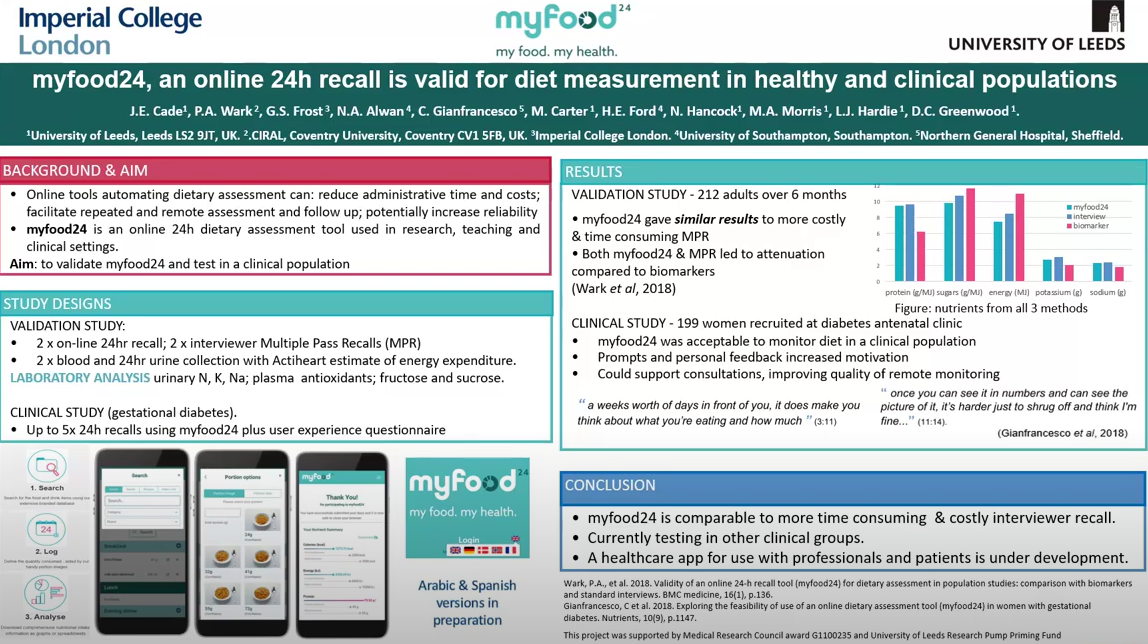We were very proud that myfood24 featured frequently in the recent eICDAM conference (International Conference on Diet and Activity Methods) by both Prof Cade and our collaborators, including 4 posters and 2 presentations. Read on to find out what these studies found!
As with many events over the last year, the International Conference on Diet and Activity Methods (ICDAM) was forced to move to an online format for the first time, as such was named eICDAM. The virtual international conference ran from 8th – 12th February 2021.
eICDAM is the only international conference which provides a forum for the discussion of high-quality and novel research to advance methods for assessing dietary and physical activity exposures and outcomes. So perfect for dietary assessment geeks like our team!
myfood24 featured in 4 posters and 2 oral presentations as well as positive mentions in other parts of the conference. The presentations showed that the German version of myfood24 is valid for use (Koch/Nothlings). myfood24-Germany compares well to more costly and time-consuming traditional dietary assessment methods. It showed a short completion time, good usability and acceptability of the tool, and confirmed its feasibility for research use.
You can try a free demo of the German version of myfood24 and find out more about how myfood24 Germany was developed.
The second presentation covered the design of a food database for indigenous populations in South-Western Uganda, describing the importance of local knowledge and involvement of the community (Scarpa/Cade). To find out more about the Ugandan database, read our news article.
Posters discussed the validation of the system and testing in healthy and clinical populations (Cade). Don’t worry if you missed Prof Cade’s eICDAM presentation of myfood24, you can still watch it here.
Two posters presented the experience of our Norwegian colleagues adapting myfood24 for their populations (Salvesen/Medin); and a further poster described the development of an Arabic food composition database to be included in myfood24 (Bawajeh/Cade). Other work which had used myfood24 described the challenges of applying a nutrient profiling model to potentially limit promotions of unhealthy foods and beverages (Jenneson/Morris).
Other highlights of the meeting were finding out about how the ‘intake’ project is supporting increased data availability in LMICs (Jennifer Coates and Megan Deitchler www.intake.org). The system has been validated in Burkina Faso and Vietnam. In Africa only 7 countries have food based dietary guidelines. We are happy to support a new PhD student at the University of Leeds to develop myfood24 for use in Nigeria.
